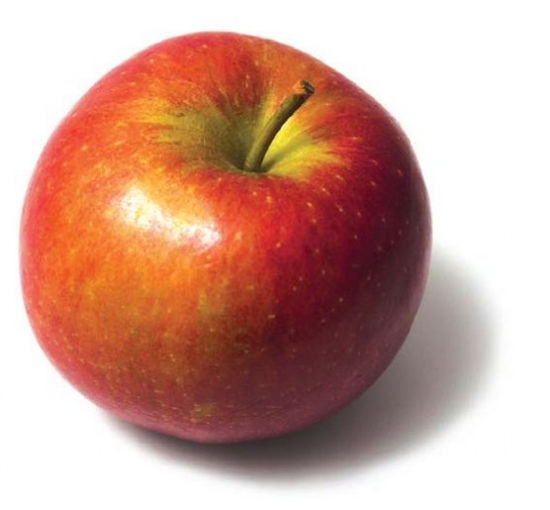
Many of us grew up with the words "an apple a day keeps the doctor away" instilled in our minds by parents or grandparents – but where did the phrase and its sensible advice originate? In Pembrokeshire, Wales, U.K. where the words originated in 1866 and it was said "Eat an apple on going to bed, and you'll keep the doctor from earning his bread."
Apple production has certainly changed since those days – the original apple comes, it is claimed, from the foothills of the Himalayas and the Caucasus where until today, it grows wild and is small and pale in color. Nowadays some eight thousand varieties of eating and cooking apples are grown around the world, but only a small number of these have become commercially important. However, modern agriculture continues to introduce new varieties, hoping to catch world markets, improve shelf life and tempt palates.
Apples have existed in this region for centuries too – remember Adam and Eve? The apples of the early days were small and uninviting and did not grace the vendors' stalls in the markets as they do today, even though they could be sweet and were referred to as 'Sucari'. The early years of the State saw apple production becoming an important target. In the kibbutzim and moshavim founded at the higher altitudes prevalent in the Galilee, orchards were planted and came to blossom across the Hula valley and beyond. The quantity of apples produced was next in line to that of oranges, but ways to improve quality and quantity still had to be found and so experimentation began. Initially, it became obvious that to improve the existing fruits colder spells were a must prior to blossoming and in addition methods of watering had to be ameliorated. So, apple orchards in the valley were replaced by trees bearing soft fruits, and were moved to higher grounds around the Hula valley and into the Napthali hills. Watering methods were improved for all types of farming and experimentation in the crossbreeding of overseas varieties began to provide the answers.
Experimentation still continues as global warming spreads its tentacles with adverse effects on many aspects of crop production. With a lack of cool, mountainous regions in the country, Israeli farmers have now succeeded in producing crossbreeds that can be grown successfully in lower and warmer areas as long as the soil type is suitable.
One such producer, David Fine, from Metulla, was drawn into experimentation some 18 years ago. The tree bearing the Anna apple which was developed by 'Daddy' Stein from Kibbutz Ein Shemer, does not require prolonged cold spells. It is highly fruitful and the fruit has an attractive skin color and odor. The apples are also ready for harvesting as early as June/July and this fulfilled some of the required aspects. One problem was its short shelf-life so David decided to try crossbreeding with the popular Golden Delicious apple which has a longer shelf life and ripens in September. The cross breeding and production of seedlings had to be carried out in the most sterile conditions, assisted by supplementary chemical substances and kept in isolation for as long as four years. It took 18 years before the right fruit appeared and ripened on the tree. The apple is now ready to be put on the market after going through tasting trials and coming out equal to one of our most popular brands, the Top Red, which is grown on the Golan Heights.
Speaking of the trials and tribulations involved, David smiles as he says proudly: "I did it at last and gave it the family name – Fine Apple!"
A large percentage of our apple crops are kept in cold storage and released for marketing throughout the winter months and that too led to experimentation and improvements in Israeli expertise. Now that we also have the earlier summer ripening fruits, apples are to be found on the shelves throughout the year and can be consumed regularly with their health properties in mind.
According to the books, there are ten main health benefits to the apple: bone protection, lowering of LDL cholesterol, lung, liver and breast cancer prevention, diabetes management, protection of brain cells that can be affected by Alzheimer's, weight loss and the consumption of apple juice daily can reduce wheezing caused by asthma.
So with all that in mind, let's eat apples!
Note: Followed by recipes on apples (Barbara’s)
 The Morman University Sunday Concert, with ESRA
The Morman University Sunday Concert, with ESRA  Congratulations to ESRA Rehovot on its 10th
Congratulations to ESRA Rehovot on its 10th  THANK YOU!
THANK YOU!-1516356428.jpg) Hand in Hand Food Pantry
Hand in Hand Food Pantry Forever Slim
Forever Slim Food Foolish
Food Foolish Barbara Abraham
Barbara Abraham